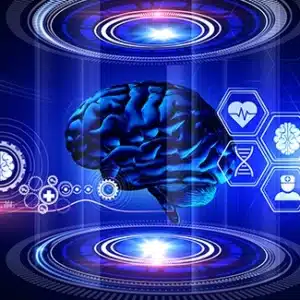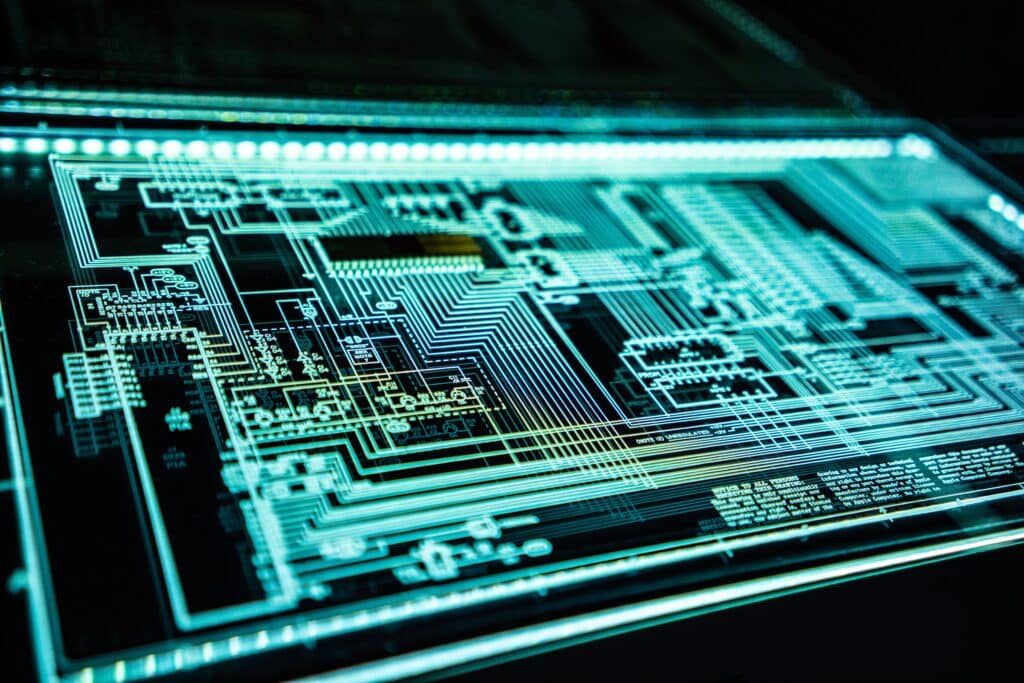Uncovering the Potential for Cognitive Computing
Updated: June 19, 2024

Cognitive computing involves using computerized models to stimulate the thought process in human beings, especially in complex situations where there may not be a straightforward answer or could be ambiguous and uncertain. The phrase “cognitive computing” was coined after Watson, IBM’s cognitive computing system.

Generally, computers calculate faster than human beings. However, they are not yet able to master some tasks like understanding natural language or recognizing specific objects in images. Human thoughts are well beyond the comprehension of many artificial systems. It can develop great thinking and reasoning from mundane triggers and come up with a conclusive answer.
Cognitive computing came into place to combine different technologies with AI and create a roadmap for achieving this deep level of reasoning.
Some technologies that come into play when creating cognitive computing systems include real-time computing, natural language queries, and machine learning capabilities. These computing systems can analyze large amounts of structured and unstructured data.
Key Features of Cognitive Computing
These are the key features that cognitive systems utilize to enable them to simulate the human mind and achieve high levels of reasoning and thinking capabilities.
High Integration
The systems work with different modules, all integrated into one to create a central learning system where new data and interactions, as well as historical data, affect how the systems conclude on a matter.
Probabilistic
The cognitive system discovers the relevant patterns based on the context in which it is being investigated. Then, it generates and evaluates several hypotheses based on available evidence and predicts connections between variables. Finally, it returns the final answer dependent on deep inference and learning.
Adaptive Learning and Dynamism
The cognitive system learns and changes as new information comes in. It also analyses every new piece of data to determine new patterns, contexts, and activities. This way, it is able to get a deep understanding of the various variables that are coming into play in any event.
Information Adept
Cognitive computing systems can integrate big data from various sources and synthesize ideas from the patterns that come from them.
High Interactivity
The systems work by providing several tools and interactive designs that enable advanced communications within the systems and enable better human-computer interactions, visualizations, and data analysis.
What is the Potential of Cognitive Computing?
Cognitive computing can offer real-world solutions and improve many of today’s systems while offering various advantages. Here is a quick look at how it can revolutionize different industries.
Retail Business
As many businesses go online, cognitive computing may enable them to provide the goods and services that customers really need. Several websites have already implemented integrated cognitive analysis. This system collects information on customer interactions with the website and can tell what kind of products the customer wants. It analyzes the information to recommend the products it believes the customer may be interested in, making the work of marketing assistants easier.
A study by EAI on cognitive computing using semantic technology showed that cognitive computing could be utilized in semantic technology to enhance the organization’s interaction with its customer base on social platforms and its website. It can enable organizations to improve their customer engagement and deliver tailored solutions.
Cognitive computing has more potential as it can be used for price optimization, demand forecasting, and web design. In demand optimization, the tool can be used to determine the best price for a good. It can also be used to predict potential demand for a period and adjust the supply chain accordingly. Retailers can also use it in-store to determine the price for different items and the location of specific items on the shelves.
Banking and Finance
The banking and finance industries can tap into the immense capabilities of cognitive computing to enhance their efficiency, customer experience, and engagement. It could be used to gain insights into customer buying behavior, determine the best features to include in the baking products, and streamline the customer delivery processes.
This technology enables the organization to serve customers in a few minutes and cut down on loan application wait times. The banking sector, especially online, can tailor its services based on the customer data collected to meet customer needs more efficiently.
Supply Chain Management
Cognitive computing can have several applications in logistics, supply chain management, and warehousing. You could use cognitive technology in warehousing to compile storage codes, automate picking vehicles, and analyze product movement data to prevent overstocking and taking up all the warehouse space.
A research paper by GEP and CIO.com on building intelligent supply chain systems found that cognitive computing would help organizations make their systems more resilient and agile, especially during times of disruption. Besides, it helps businesses use predictive analytics in mapping future supply chain issues.
Besides, it has a role to play in the implementation of the Internet of Things, managing infrastructure to enable smooth movement and optimizing warehouse operations. Cognitive computing should also guide your re-ordering frequency through demand analysis and projected shortages.
Enhancing Cybersecurity
Cognitive algorithms can help keep websites safe by dealing with cybersecurity threats. It can also track users on the site and flag off bots or those attempting to hack into the system. For users, this is a great way to detect misleading information before using it for decision-making.
IT teams can use cognitive to scan their systems for vulnerabilities, detect any apparent threats, and recommend the best course of action. Detecting and stopping a threat is vital in ensuring the business site does not leak customer data or cause downtime.

A study on the use of cognitive methods in cybersecurity found that intelligent systems could help organizations map likely human behavior when interacting with their online systems to identify likely courses of actions by hackers beforehand. It could also be used to simulate possible attacks in the future.
Healthcare
The medical industry heavily relies on patient data for decision-making. Doctors check the results of various tests before recommending any medication. Cognitive analysis can reduce the diagnosis time and relate historical data with current information to improve customer experience outcomes.
A study on the use of cognitive systems in obesity management found that it can create effective adaptive obesity intervention programs. It could help give timely feedback to the patient and caregiver and enhance behavior change.
In the management of healthcare, cognition helps in drug distribution, mapping out areas that need additional intervention, and predicting any pandemics that come on the way so that you can prepare adequately for them.
Education
A study on the use of cognitive technology in the development of teaching systems found that it could enhance better learning by mimicking human learning processes and adapting to various environments. It can ease the teaching workload while providing better methodologies for improving comprehension among the students. Besides, organizations may use it to offer tailored learning methods according to student abilities.
Cognition has several benefits across all sectors of the economy. Its ability to analyze data, determine patterns, and make predictions enables users to handle issues as they happen and plan for the future with greater efficiency. Cognitive technology is still in its infancy. However, it holds greater potential for transforming operations, cutting costs, enhancing efficiency, and mitigating possible disasters and downtime.

